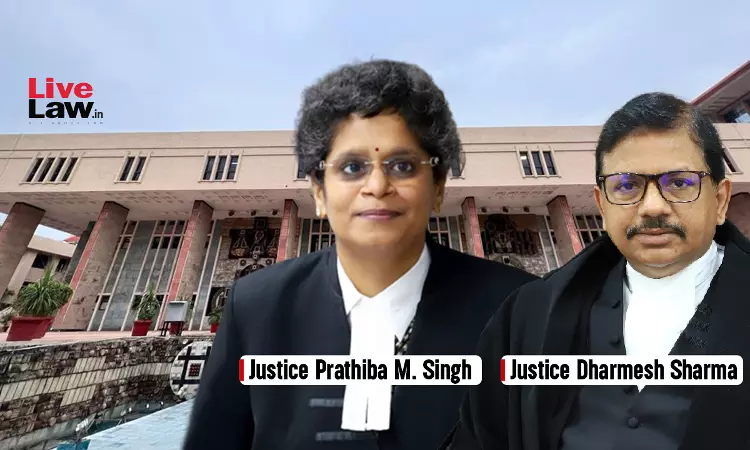- Home
- /
- High Courts
- /
- Delhi High Court
- /
- No Unfettered Right To...
No Unfettered Right To Cross-Examine Person Making Statements U/S 138(B) Customs Act: Delhi High Court
Kapil Dhyani
10 Feb 2025 5:10 PM IST
The Delhi High Court has made it clear that a person facing charges under the Customs Act, 1962 does not have an unfettered right under Section 138B, to cross-examine the informant or person making incriminatory statements.Section 138(B) of the Customs Act of 1962 deals with the admissibility of statements made during customs proceedings.A division bench of Justices Prathiba M. Singh and...
The Delhi High Court has made it clear that a person facing charges under the Customs Act, 1962 does not have an unfettered right under Section 138B, to cross-examine the informant or person making incriminatory statements.
Section 138(B) of the Customs Act of 1962 deals with the admissibility of statements made during customs proceedings.
A division bench of Justices Prathiba M. Singh and Dharmesh Sharma relied on Kanungo & Co. v. Collector of Customs, Calcutta and Others (1983) where a Coordinate bench of the High Court observed that if any information is received from a statutory authority and an adjudicating process is initiated, there is nothing in law which compels the information provider to be involved in the judicial proceedings or warrant him/her for cross examination.
In the case at hand however, since CESTAT had set aside the penalty imposed on a similarly placed co-accused citing lack of opportunity to cross-examine, the Court deemed it fit to grant the same opportunity to the aggrieved appellant.
It observed, “In this case,the CESTAT has followed a curious course where in respect of one of the Appellants, despite the right of cross examination having not been given, the penalty has been upheld and the appeal has been dismissed by CESTAT. However, in case of the other party i.e., Sunil Aidasani, the exact opposite approach has been adopted by CESTAT in the same case. Such discrimination between two similarly placed persons would not be possible.”
The case pertained to the alleged import of prohibited goods. The bench was dealing with two appeals, one filed by Sushil Aggarwal (appellant) against the rejection of his plea to cross-examine Mr. Bhalla, who implicated him. The other appeal was preferred by the Department insofar as CESTAT allowed co-accused Mr. Aidasani to cross-examine Bhalla.
Counsel appearing for the appellant argued that the CESTAT had discriminated between his client and Aidasani.
Reliance was placed on Shri Krishan Kishor Aggarwal vs Additional Commissioner of Customs (2019) wherein a coordinate bench observed that if a statement of the co-accused becomes the basis of an impugned order, then denial of cross-examination of such witnesses will violate the principles of natural justice.
The High Court observed that Section 138(B) of the Act “cannot be claimed as an unfettered right in all cases”.
However, in the facts of the present case, the Court said both Aggarwal and Aidasani should be afforded an opportunity to cross-examine Bhalla. It disposed of the appeals after prescribing conditions for the manner of cross-examination.
Case title: Sushil Aggarwal v. Principal Commissioner Of Customs and connected matter
Citation: 2025 LiveLaw (Del) 159
Case no.: CUSAA 35/2025



